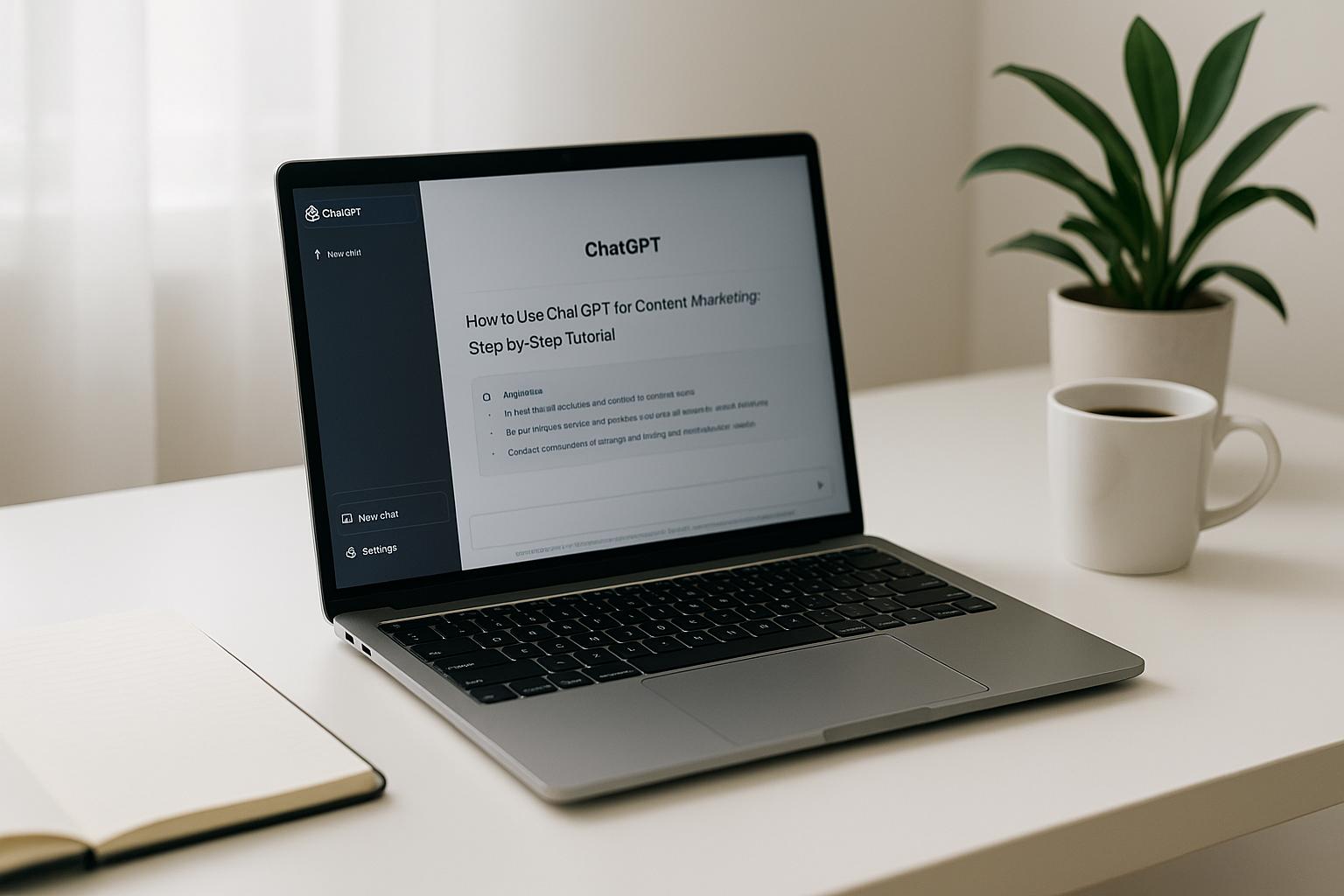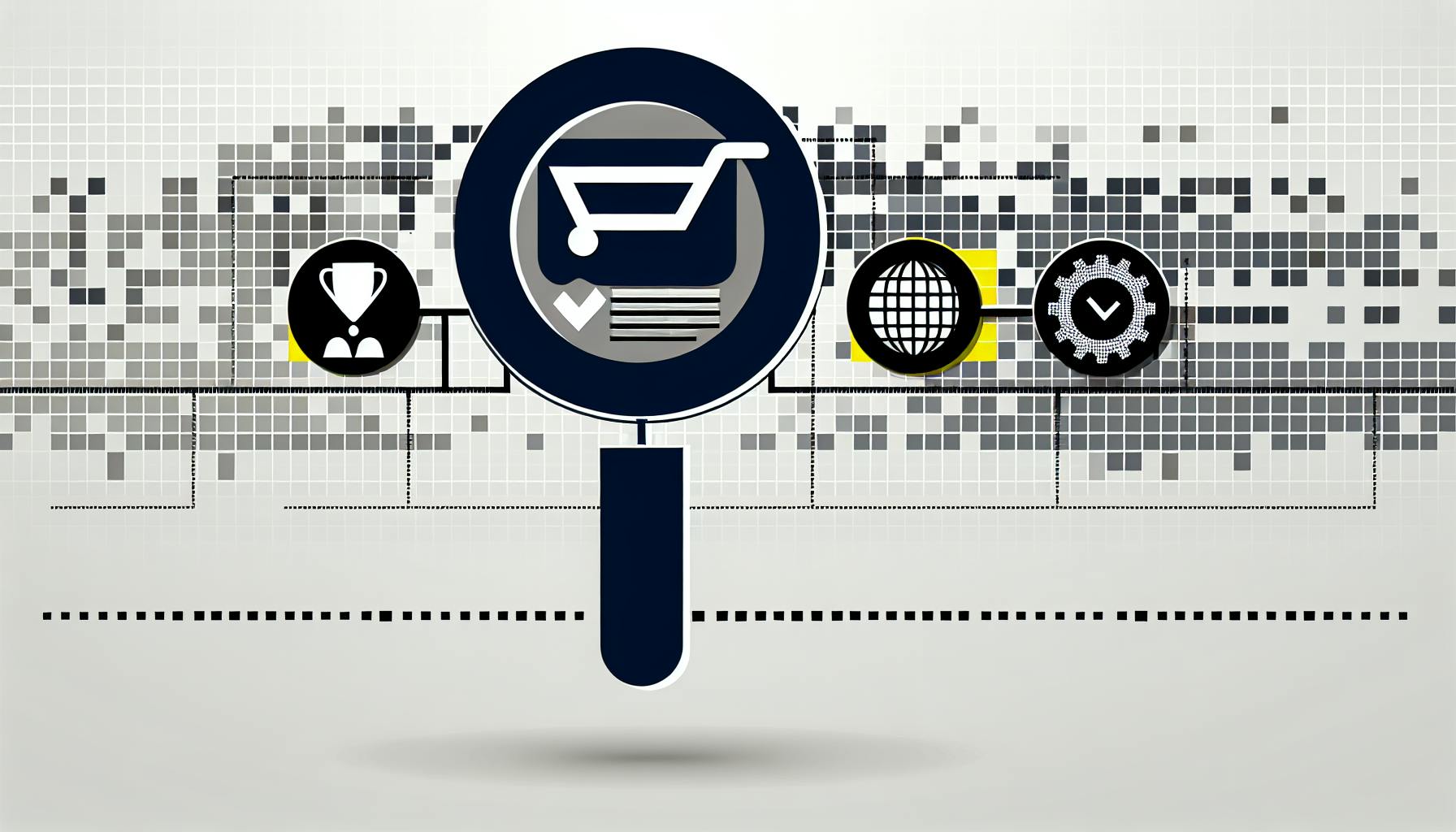Event scheduling software streamlines planning, saves time, and reduces stress. Here's what you need to know for 2024:
- Key features: Calendar tools, guest management, messaging systems, resource planning
- How to choose: Consider growth needs, costs, system requirements, data safety, ease of use
- Setup steps: Initial configuration, data migration, team training, integrations
- Top options: Cvent (large events), Eventbrite (mid-size), Raklet (small-scale)
- Optimization tips: Automate tasks, use special features, monitor performance, leverage data
Quick Comparison:
| Software | Best For | Key Feature | Starting Price |
|---|---|---|---|
| Cvent | Large conferences | Custom websites | Custom quote |
| Eventbrite | Ticketed events | Easy ticketing | Free for free events |
| Bizzabo | Corporate events | All-in-one platform | Custom |
| Raklet | Clubs, associations | CRM integration | Free plan available |
| Hubilo | Virtual conferences | Hybrid focus | $999/event |
Choose software that fits your event size, budget, and must-have features. Always test drive before committing.
Related video from YouTube
What is Event Scheduling Software
Event scheduling software is a digital tool that's changing the game for event planners. It's like a control center for managing everything from guest lists to venue bookings.
Main Functions
Event scheduling software makes the whole planning process smoother. Here's what it does:
- Cuts down on repetitive tasks
- Puts all event info in one place
- Keeps everyone updated
- Makes it easy for people to sign up and pay
How the Technology Has Changed
The software has come a long way:
| Era | What's New |
|---|---|
| Early 2000s | Basic digital calendars, email invites |
| 2010s | Cloud-based, mobile access |
| 2020s | AI features, virtual event tools |
Today's software is smarter and faster. It's not just about scheduling anymore - it's about creating great experiences from start to finish.
Comparing With Other Event Tools
Event scheduling software is different from general event management tools:
- It focuses on timing and coordination
- It works well with other tools you already use
- It can handle events of any size
Current Features
Modern event scheduling software can:
- Sync with your calendar
- Create custom sign-up forms
- Send automatic reminders
- Keep track of equipment and catering
- Give you data to make your events better
Here's a real example: The University of Vermont started using EMS Event Planner Software. They cut down phone calls to their event office by over 50%. This gave staff more time to use space better and plan better events across campus.
"With EMS, we can see the status of the whole event and all its parts at once. This complete view has been a big help." - Kathleen Rydelek, Rochester Institute of Technology
Event scheduling software is more than just a tool - it's changing how we plan events. As we move into 2024, we'll see even more new features that will make event planning easier and more successful.
Must-Have Features
Let's dive into the essential features you need in your event scheduling software for 2024. These tools will make your life easier and your events run smoother.
Calendar Tools
Your software needs solid calendar features:
- Updates that sync across all your devices
- Plays nice with Google Calendar and Outlook
- Easy drag-and-drop scheduling
- Color-coding to keep event types organized
Fun fact: 72.5% of organizers say their event management software was key to their last conference's success. Why? Killer calendar tools.
Guest Management
Managing guests well is a game-changer. Look for software that:
- Lets you customize registration forms
- Tracks RSVPs automatically
- Helps you group attendees for personalized experiences
- Makes check-ins and badge printing a breeze
Take Bizzabo's Event Experience OS, for example. It lets you tailor the registration process and group attendees by ticket type, location, or whatever else you need.
Message Systems
Good communication is crucial. Your software should offer:
- Automatic email reminders
- Text notifications
- In-app chat for your team
- Personalized messages for different attendee groups
Luiz Martins from 6Connex puts it well:
"Event apps are must-haves for management and engagement. They let organizers interact with attendees in real-time and gather data to make smart decisions during and after the event."
Resource Planning
Don't let poor resource management tank your event. Look for:
- Tools to track your equipment and supplies
- Ways to manage vendors
- Budget tracking features
- Scheduling that prevents double-booking
EventsAir, which has powered over 350,000 events, offers great resource planning tools. They've helped big names like Microsoft keep their event logistics on point.
Working With Other Software
Your event software shouldn't be an island. It should:
- Connect with your CRM
- Work with your marketing tools
- Link up with payment systems
- Play well with virtual event platforms
6Connex, for instance, offers integrations that help you make the most of your event data, giving you insights into how attendees behave and how well your event is doing overall.
How to Choose the Right Software
Picking event scheduling software can make or break your planning process. Let's look at what you need to consider.
Growth Needs
Your software should grow with you. As your events get bigger, your tools need to keep up.
| Event Size | Software Needs |
|---|---|
| Small (< 100 attendees) | Basic scheduling, simple registration |
| Medium (100-500 attendees) | Advanced registration, basic analytics |
| Large (500+ attendees) | Multi-track scheduling, advanced analytics, integration capabilities |
Josh Culley-Foster from Public Good says:
"For event software, you need to know your goals and what's important during the event. Planning an event is like climbing a mountain; reaching the peak is only halfway, you still have to climb down."
Look for scalable software. Bizzabo's Event Experience OS, for example, lets you start small and add features as you grow.
Cost Planning
Know your pricing options:
- Subscription-based: Monthly or annual fee
- Per-event pricing: Pay as you go
- Freemium: Basic features free, pay for extras
Don't forget about hidden costs like training and support.
System Requirements
Make sure the software works with your current tech:
- Does it work with your systems and devices?
- Can it connect to your CRM and payment systems?
- Is it cloud-based or on-premise?
Data Safety
With the event management software market booming, data security is key. Look for:
- Encryption for your data
- Compliance with standards like GDPR
- User permission settings
Ease of Use
A user-friendly interface saves time. Consider:
- Clean, logical design
- Available training resources
- Quality of customer support
Take advantage of free trials or demos. Nothing beats hands-on experience to see if a tool really fits your needs.
sbb-itb-645e3f7
Setting Up Your Software
Let's walk through setting up your event scheduling software. It's not as tough as you might think.
First Steps
Start with the basics:
- Pick your date, time, and place
- Write a clear event description
- Set up your registration forms
Take Dior's 2023 summer pop-up store, for example. They used Eventtia to create a custom event page that matched their brand perfectly. This made it easy for customers to choose their Dior experience.
Moving Your Data
Switching systems? Here's how to move your data:
- Export your current data (usually as a CSV file)
- Import it into your new software
- Check everything transferred correctly
Tip: Ask your new software provider if they can help with data migration. It can save you a lot of headaches.
Training Your Team
Get your staff ready to use the new software:
- Run thorough training sessions
- Make simple guides for common tasks
- Set up a way for people to get help when they need it
Good training makes a big difference. As one expert puts it: "Companies with good support see new tech as a plus for their business."
Connecting Your Tools
Want your new software to work with your other systems? Here's a quick look:
| What to Connect | Why It's Good | Examples |
|---|---|---|
| CRM | Manage attendee data better | Salesforce, HubSpot |
| Marketing Tools | Run promo campaigns automatically | Mailchimp, Marketo |
| Payment Systems | Make ticketing easier | PayPal, Stripe |
| Virtual Event Platforms | Run hybrid events | Zoom, Hopin |
Watch Out For These Issues
Be ready for common problems:
- Tech hiccups: Know how to reach your software's support team
- Payment issues: Test everything before you go live
- People struggling to use it: Be ready to give extra help to team members who need it
If you're prepared for these issues, you'll handle them better if they pop up.
Software Options Compared
Let's break down some popular event scheduling tools to help you pick the right one.
Big Business Options
For large companies running complex events:
| Software | Key Features | Best For | Pricing |
|---|---|---|---|
| Cvent | Custom websites, analytics, onsite solutions | Big conferences, trade shows | Varies with event volume |
| Bizzabo | All-in-one platform, networking tools | Corporate events, summits | Custom |
| Aventri | End-to-end management, venue sourcing | Global enterprises | Quote-based |
Cvent's the big player here. It's what major corporations use worldwide. Why? It's super customizable.
"Cvent's complex registration logic saved us tons of time for our 5,000-person conference", one planner told us.
Medium Business Choices
Mid-sized companies need a sweet spot between features and cost:
| Software | Key Features | Best For | Pricing |
|---|---|---|---|
| Eventbrite | Easy ticketing, marketing tools | Ticketed events, festivals | Free for free events, % fee for paid |
| Hubilo | Virtual and hybrid focus | Tech conferences, trade shows | From $999 for 500 guests |
| MeetingHand | Custom registration, budget management | Corporate meetings, workshops | From $100 per event |
Eventbrite's a crowd favorite. It's easy to use, and the numbers back it up. In 2022, they handled over 290 million tickets globally.
Small Business Tools
Smaller teams need efficiency without breaking the bank:
| Software | Key Features | Best For | Pricing |
|---|---|---|---|
| Raklet | CRM integration, member management | Clubs, associations | Free plan, paid from $49/month |
| Eventzilla | Flexible pricing, multi-event management | Local events, small conferences | Various tiers, including free |
| Accelevents | All-in-one platform, virtual tools | Startups, small businesses | $1 per attendee base price |
Raklet's free plan is a hit with small organizations.
"We've seen small non-profits grow their membership by 200% using our free tools", says their CEO.
Free Options
On a tight budget? These no-cost tools might save the day:
| Software | Key Features | Limitations | Best For |
|---|---|---|---|
| Perfect Venue | CRM, proposals, payments | Limited free features | Venue management |
| Social Tables | Floor planning, guest check-in | One active event | Event layout design |
| Odoo Events | Event pages, attendee management | Basic features only | Simple event organization |
Social Tables is popular with small planners. One user said:
"I saved $500 on my first event by using Social Tables instead of hiring a designer."
Features and Prices at a Glance
Here's a quick comparison:
| Software | Key Features | Free Plan | Paid Plan Start |
|---|---|---|---|
| Eventbrite | Ticketing, marketing | Yes (free events) | % fee per paid ticket |
| Cvent | Comprehensive management | No | Custom quote |
| Raklet | CRM, member engagement | Yes | $49/month |
| Hubilo | Virtual event focus | No | $999/event |
| Accelevents | All-in-one platform | No | $1/attendee |
Pricing often depends on your specific needs. Many providers offer custom quotes for bigger or more complex events.
When choosing, think about your event size, budget, and must-have features. Don't skip the free trials – nothing beats hands-on experience to find your perfect match.
Getting More from Your Software
Want to supercharge your event planning? Let's dive into how to squeeze every drop of value from your event scheduling software.
Speed Up Your Work
Automation is your secret weapon. Here's how to use it:
| Task | Automation Tip | Benefit |
|---|---|---|
| Registration | Auto-send confirmation emails | Less time, fewer mistakes |
| Social Media | Schedule posts in advance | Keep engagement steady |
| Feedback | Auto-send post-event surveys | Get insights without the hassle |
| Payments | Process online | Cut down on paperwork |
Did you know? Eventbrite users save up to 25% of their time by automating registrations. That's more time for creating killer events, less time drowning in admin.
Adding Special Features
Make your software work for YOU:
Connect your event data to your CRM. It's like giving your lead tracking superpowers.
Got a smartphone? So do your attendees. Make sure they can register on the go.
Don't just send emails. Send the RIGHT emails. Use attendee data to personalize your messages.
Take Hubilo, for example. Their virtual event features helped tech conferences THRIVE during the pandemic. Some saw attendee interaction jump by 200% compared to in-person events. Now that's what I call making lemonade out of lemons!
Checking Performance
Keep your software in top shape:
1. How fast do your registration forms load?
Watch this like a hawk. Slow forms = lost attendees.
2. Are your emails hitting the mark?
Track delivery and open rates. If they're low, it's time to change tactics.
3. How's your event app doing?
Analyze user engagement. Low numbers? Time to spice things up.
CrowdPass showed us how it's done. They set up real-time monitoring for Ecolab events. Result? Organizers could tweak things on the fly, giving attendees a better experience.
Using Your Data
Data isn't just numbers. It's your crystal ball:
Look at how attendees behave. What do they like? What makes them yawn?
Check your engagement metrics. Use them to sharpen your marketing.
Which promo channels are bringing in the crowds? Track those conversion rates.
Here's a hot tip: The Freeman 2024 Exhibitors Trends Report says lead generation is the top priority for event success. Use your data to zero in on this golden goose.
Planning for Growth
As your events get bigger, your software needs to keep up:
Look for pricing that grows with you. You don't want to pay for features you don't need yet.
Can your software handle a crowd? Make sure it can scale up as your attendee list grows.
Think ahead. Choose software that plays nice with other tools you might need down the road.
Take Bizzabo's Event Experience OS. It lets you start small and add more bells and whistles as you grow. It's like a Swiss Army knife for event planners - always ready with the right tool for the job.
Conclusion
Let's wrap up our deep dive into event scheduling software for 2024 and outline your next steps.
Key Takeaways
When picking event scheduling software, focus on these factors:
| Factor | Why It Matters |
|---|---|
| Automation | Cuts time, reduces mistakes |
| Scalability | Grows as you do |
| Integration | Plays nice with your tools |
| User Experience | Easy for everyone to use |
| Data Security | Keeps info safe |
The right software can flip your event planning on its head. Just ask Denise from Zapier's events marketing team:
"Accelevents has the best-in-class customer support. Any time of night or day, they're back to us in minutes."
That kind of support? It's a lifesaver when you're knee-deep in event chaos.
What's Next?
1. Know Your Needs
Figure out what types of events you're running, how big they are, and what you absolutely need from your software.
2. Shop Around
Use this quick comparison to start your search:
| Software | Shines In | Cool Feature |
|---|---|---|
| Swoogo | Flexibility | Custom registration forms |
| Eventcombo | Marketing | Pro-level email tools |
| Accelevents | Support | Always-on customer help |
3. Test Drive
Don't just take our word for it. Get your hands on free trials or demos.
4. Think Big
Pick software that can keep up as you grow. By 2024, the event management software market is set to hit $14 billion. You'll want a piece of that pie.
5. Skill Up
Make sure your team knows the ins and outs of your chosen software. It's the best way to squeeze every drop of value from it.


